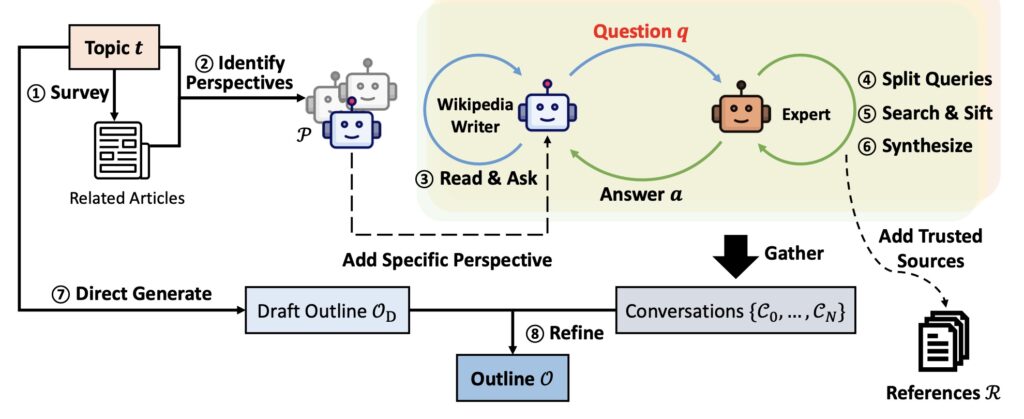STORM combines GPT-4 and Bing Search to generate long, cited articles in minutes—completely open-source and free to use.
- Powerful Research Tool: STORM generates Wikipedia-like reports by combining GPT-4 and Bing Search for comprehensive, cited content.
- Automated Pre-Writing Process: It simulates multi-perspective conversations and organizes findings into a structured outline for article creation.
- Open Source and Free: Completely free to use, STORM offers a cutting-edge solution for researchers, educators, and content creators.

Stanford University has launched STORM, an open-source AI tool designed to revolutionize the process of creating long-form, cited articles. Using GPT-4 and Bing Search, STORM can generate comprehensive reports in as little as three minutes. The platform aims to automate the pre-writing process, ensuring that the content is grounded, well-organized, and broad in scope—features often lacking in AI-generated writing.
STORM is free to use, making it accessible to students, educators, and researchers who need a reliable tool to craft Wikipedia-quality content.
How STORM Works
The innovation behind STORM lies in its approach to pre-writing. Unlike traditional AI tools that jump straight into drafting, STORM automates the foundational research phase through a three-step process:
- Diverse Perspective Discovery: STORM analyzes related Wikipedia articles and online sources to uncover multiple viewpoints on a topic.
- Simulated Conversations: The AI simulates a dialogue where different perspectives pose questions to a topic expert, ensuring that answers are rooted in credible sources.
- Outline Creation: Using the information gathered, STORM creates a structured outline, combining its internal knowledge with curated data.
This method ensures the final output is grounded, organized, and comparable to professionally written Wikipedia pages.
Results and Expert Feedback
To test STORM’s effectiveness, researchers curated a dataset called FreshWiki, containing high-quality recent Wikipedia articles. Compared to baseline AI systems, STORM produced articles with 25% better organization and 10% broader coverage. Experienced Wikipedia editors also praised STORM for its ability to streamline the pre-writing stage, though they noted challenges like source bias and over-association of unrelated facts.

Open Source and Free Access
One of STORM’s standout features is its accessibility. By making the tool free and open-source, Stanford empowers anyone to leverage advanced AI for content creation. Whether you’re writing a report, drafting educational material, or conducting research, STORM provides a robust, efficient solution for generating high-quality articles.
The Future of Grounded Writing with STORM
STORM’s ability to synthesize diverse perspectives and create structured, cited content represents a significant leap forward in AI-assisted writing. By automating the often-overlooked pre-writing process, it not only saves time but also ensures greater accuracy and depth.
Stanford’s innovation invites researchers and educators to rethink how they approach long-form content creation, offering a glimpse into a future where AI doesn’t just assist in writing—it transforms the entire process.

